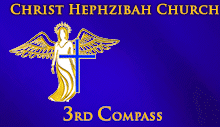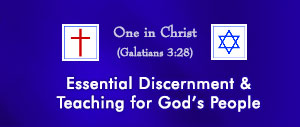Updated 5/5/2021
Can I Trust the Bible?
The Holy Bible is the foundation for church doctrine and Christian beliefs. It is God's instruction and revelation to us for understanding our history, roles, and reality as a whole. Accurate and untainted scripture is important for our journeys in this life, as well as into the next, so we need to trust its content.
But how can we trust it completely when there are many unexplainable discrepancies in scripture? How can we trust it when it was recorded by men - fallible and corruptible creatures? How can we trust it when it was modified by centuries upon centuries of manual copying and translated into different versions and languages?
Scripture is the spiritual fuel we need to run our lives on. If this fuel is tainted or the wrong kind altogether, our engines will falter, sputter, and may even be destroyed beyond repair. Can we go full throttle with the scripture we have today?
Like going full throttle in a road race, the answer is, "Yes, but with wisdom." If you don't have enough experience and use fuel that is tainted, your engine will not run well, and worse, your control of your race vehicle will be lacking, so you'll likely run very quickly off the road.
We must be able to discern good fuel from bad. But even more important, we need the Mind of God or His Spirit in us (1 Corinthians 2:10-16), as well as wisdom or the experience to use His word correctly (2 Timothy 2:15). This means we must be literally reborn with God's Spirit, so the true meaning of scripture and spiritual guidance can come forward easier. See The True Gospel and Imposters12 for more about that.
I say "easier" because having God's Mind and belonging to Him are no guarantees you will understand and correctly use scripture or other spiritual guidance. Spiritual warfare is a real concern and the enemy can easily influence you and your interpretation of things, whether you belong to God or not. But that is a subject I won't discuss here.
This article is concerned with whether or not you can trust the Bible and church doctrine. Discerning good fuel from bad or validating scripture also requires us to have the original writings God gave His servants since the time of Moses. This means we must have the manuscripts from the original languages of the Bible in Hebrew, Aramaic, and Greek, and compare their content to the scripture we use today.
Do we have those ancient manuscripts? Yes, as Dr. Bruce M. Metzger, a distinguished scholar of ancient documents, notes we possess over 5,600 ancient manuscripts of the New Testament in Greek alone1. And there are some 24,000 total in ancient languages that were compared to evaluate if scripture changed since the earliest manuscripts1.
Furthermore, the earliest manuscripts were dated to within decades of the writings by the original authors2, and the content of the manuscripts agree among each other to a very high degree7. Biblical scholars, Norman Geisler and William Nix, also conclude the New Testament survives in a form that is 99.5% pure5.
Dr. Metzger also notes that the errors among the manuscripts are largely superficial, such as misspellings, and that there are no doctrines in danger of being rejected simply because of these errors4. In contrast, the ancient document that comes closest to that of Biblical content and accepted as authentic by scholars today is the Illiad, which we know from less than 650 manuscripts in the original language that were dated about a thousand years after the original composition in 800 B.C.3
One thousand years as opposed to decades for the New Testament! Other ancient documents considered authentic and reliable today, such as works by the Roman historians, Tacitus and Josephus, survive today through only a handful of manuscripts (less than ten) dated hundreds of years after the original compositions8.
The contrast is obvious. Are we willing to discredit the Bible when we so readily accept the validity of other ancient documents that survived through copies in far less quantity and are much further removed in time from the original compositions? Common sense and reason tell us that we have more than enough ancient manuscripts to trust that scripture has survived intact to this day.
That fact also makes unfounded any claims that scripture in general was changed for political or other corrupt reasons. The great quantity of ancient manuscripts has been cross-referenced for the validity of our current Bibles. However, this does not mean that every Bible or translation is pure in content or was not altered for less credible reasons. Every Bible that was translated from the original Biblical languages will have errors simply because translating from one language to another cannot be done with 100% semantic accuracy if the translator does not completely understand what is being said or interprets things in the wrong way.
After many years of Biblical study, I have not found any single Bible translation to be free of error. But that doesn't mean we should throw them all away. The level of which a Bible defers from the meaning in the original manuscripts is important in whether we can trust it or not, and every Bible today from the oldest, like the King James Version (KJV), to the newest, like the New International Version (NIV), has content that differs from the original languages.
We have to get past these differences in interpretation by using multiple good Bibles, as well as reference the original language manuscripts and resources, so we can compare the differences and make a better judgment to the meaning God intended.
Of course, most of us cannot read the original Biblical languages or understand the culture and historical context of Biblical times, so we cannot readily compare our current Bibles to the original words. Fortunately, this job was done for us by many scholars already, and through the fruits of their work we have many good Bibles today, such as the NIV, which concurs with original scripture to a high degree by the meaning of the words, but not as much by the letter of the word. This is because the translators for the NIV strived to get the proper meaning of scripture conveyed rather than preserve it literally, word-for-word.
The KJV is also a good translation even though it is centuries old. It concurs with original scripture by the letter of the word more faithfully than the NIV, but it is also not a perfect translation. A big flaw of the KJV is that its language is archaic Old English and difficult to understand today.
We can see that because of problems with translation and interpretation, no single modern Bible is a perfect representation of scripture from the original languages. To counter this, it is essential to use more than one Bible for serious study. Combining the NIV or another good translations (see Choosing A Bible9 for help with picking good translations), such as the KJV and NASB, are necessary for understanding scripture better.
Comparing scripture between multiple translations can give insights that would be missed by reading only one translation. If you can't afford more than one Bible, then it is best to choose a translation that tries to faithfully preserve the meaning of scripture (see Choosing A Bible9 for recommendations), because no matter what language we speak or what culture we understand, truth will come forward better as long as the meaning of God's words are kept intact and you have His Mind to help you.
Can I Trust Church Doctrine?
A serious problem we face in measuring our modern Bibles to the standard given in original scripture is not so much of translation, but of modification. These can be deliberate attempts to skew or add to the meaning of scripture or may come from errors of interpretation. Many interpretive errors result from not taking proper context into account or not understanding scripture as a whole. These problems are compounded by the tendency for people to put traditions made by man over what is actually stated in scripture.
These problems produce false beliefs and incorrect doctrine that are very difficult to change. However, these issues must be resolved, because the wrong understanding of God's word can have very serious consequences. Missing important details can even cost people eternal salvation
(see The True Gospel and Imposters12 and Light Within11 for examples).
Change must come, and the first thing we have to understand is that church doctrine is not sacred. God's word (as originally spoken) is sacred, not mankind's interpretation of it. It is only God's intended meanings that matter, but the church views even valid scripture through shattered glass by interpreting it in incorrect and scattered ways. The church also uses things that are not valid scripture or spiritual guidance that skew things and mislead even further.
There are many doctrines that need correction, but here we will only evaluate our Bibles - the source for much of our spiritual fuel. How do we know which Bibles are more faithful to the meaning of God's original words?
To evaluate this and subsequently church doctrine, we must understand the most important universal truths laid out in authenticated scripture and use them as a rule to test the validity of our Bibles and doctrine. But what is "authenticated" scripture?
Authenticated scripture is the scripture that was established and validated by the early church in the time after the age of the apostolic church that was led directly by the first disciples of Christ. This scripture includes the 39 books of the Old Testament, which were already firmly established by the time of Yeshua (Jesus), and the 27 books of the New Testament, which were judged and deemed authentic by three criteria for acceptance: Apostolic authority, Conformity to the common tenets of Christianity, and Adoption by the early church6.
The criterion of apostolic authority simply means that the document had to have been written by the original apostles or by their immediate followers. The original apostles were the first-hand witnesses to Christ before and after His resurrection.
The second criterion of conformity means that the writings conform to or are in sync with the already established rules of Christianity, and the criterion of adoption means that the document must have had wide spread acceptance and usage by the church at the time6.
This authenticated scripture is the result of the early church's efforts to uphold the authenticity and validity of Holy Scripture. This is the canon of the Christian church - the rule and standard for our belief and faith - and as discussed earlier, we do have the ancient manuscripts to verify and validate its content today, as well as good modern translations for our use.
Authenticated scripture is the tool and measure we must use to evaluate any other scripture and doctrine, so the truths found in it are essential to understand correctly. There are many more important truths than I list here, but they are beyond the scope of this document. I will only point out the most important for our discussion:
- Monotheism - There is only one true God and Creator in all existence. There were no others previously nor can others be made13.
- Holy Trinity - The concept that the Father, Son (Yeshua Mashiach (Jesus Christ)), and Holy Spirit (or Holy Ghost) are all the same one true God. They are only different manifestations or extensions of God (see 3rd Compass, Chapter Five, "The Big Picture"10 for more detailed discussion of the Holy Trinity).
- Gospel of Yeshua (Jesus) - Christ was God incarnate, "in the flesh," on earth - God's Word manifested into a man (John 1:14). He brought the New Covenant of grace in Christ and died on the cross to finalize it. He was resurrected afterwards to show the promise of eternal salvation we can all have through the New Covenant. The New Covenant has more details everyone should understand so they are actually saved by it. See The True Gospel12 for those details.
The points listed above are only a starting point, but from these we can identify and reject a lot of bad doctrine and flawed scripture. There are faiths, churches, and ministries all over the world that maintain doctrine and scripture that go against one or more of these universal truths. These can be easy to identify. See
Choosing a Bible9 for elaboration.
It is the responsibility of every Christian to know the truths of authenticated scripture. Use them to evaluate the faith, doctrine, and Bibles of every church and belief system you encounter, and reject anything that goes against these truths. Our hearts run best on pure spiritual fuel. Don't let your spiritual engine sputter and seize by persisting in beliefs and doctrine that don't preserve the teaching God intended.
Perhaps the most important teaching is what the True Gospel12 actually is. Continue reading about that here...
References
1 Strobel, Lee. "The Documentary Evidence". The Case For Christ. Pg. 81. Grand Rapids, Michigan: Zondervan, 1998. Print.
2 Strobel, Lee. "The Documentary Evidence". The Case For Christ. Pg. 76, 80. Grand Rapids, Michigan: Zondervan, 1998. Print.
3 Strobel, Lee. "The Documentary Evidence". The Case For Christ. Pg. 78. Grand Rapids, Michigan: Zondervan, 1998. Print.
4 Strobel, Lee. "The Documentary Evidence". The Case For Christ. Pg. 84, 85. Grand Rapids, Michigan: Zondervan, 1998. Print.
5 Strobel, Lee. "The Documentary Evidence". The Case For Christ. Pg. 85. Grand Rapids, Michigan: Zondervan, 1998. Print.
6 Strobel, Lee. "The Documentary Evidence". The Case For Christ. Pg. 86. Grand Rapids, Michigan: Zondervan, 1998. Print.
7 Strobel, Lee. "The Documentary Evidence". The Case For Christ. Pg. 78, 82. Grand Rapids, Michigan: Zondervan, 1998. Print.
8 Strobel, Lee. "The Documentary Evidence". The Case For Christ. Pg. 77. Grand Rapids, Michigan: Zondervan, 1998. Print.
9 Huynh, Ty Alexander. "Choosing a Bible." 3rd Compass - Christ Hephzibah Church.
<http://3rdcompass.org/g?BIBLES>
10 Huynh, Ty Alexander. "Chapter Five: The Big Picture." 3rd Compass: Navigating Reality and the Last Days. Print and online.
<http://3rdcompass.org/g?BOOK-CH5>
11 Huynh, Ty Alexander. "Light Within". 3rd Compass - Christ Hephzibah Church.
<http://3rdcompass.org/g?LIGHT>
12 Huynh, Ty Alexander. "The True Gospel and Imposters". 3rd Compass - Christ Hephzibah Church.
<http://3rdcompass.org/g?TRUE-GOSPEL>
13 Biblical references for only one God Creator: Deuteronomy 4:35, 4:39, 32:39; Isaiah 43:10, 45:5-7, 45:14, 45:21-22, 46:9; 1 Samuel 2:2; Joel 2:27; John 1:3, 5:44; 1 Corinthians 8:4


